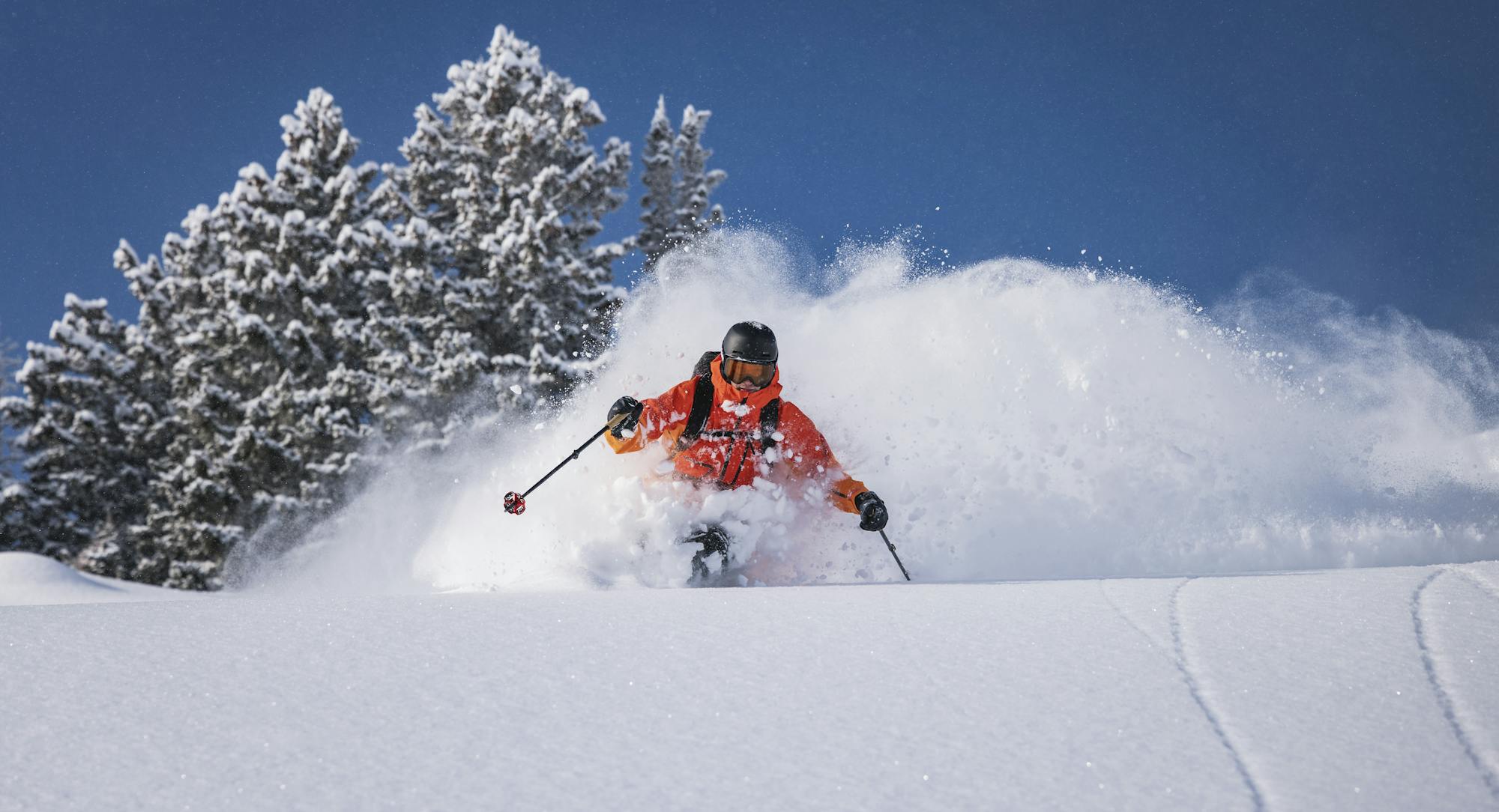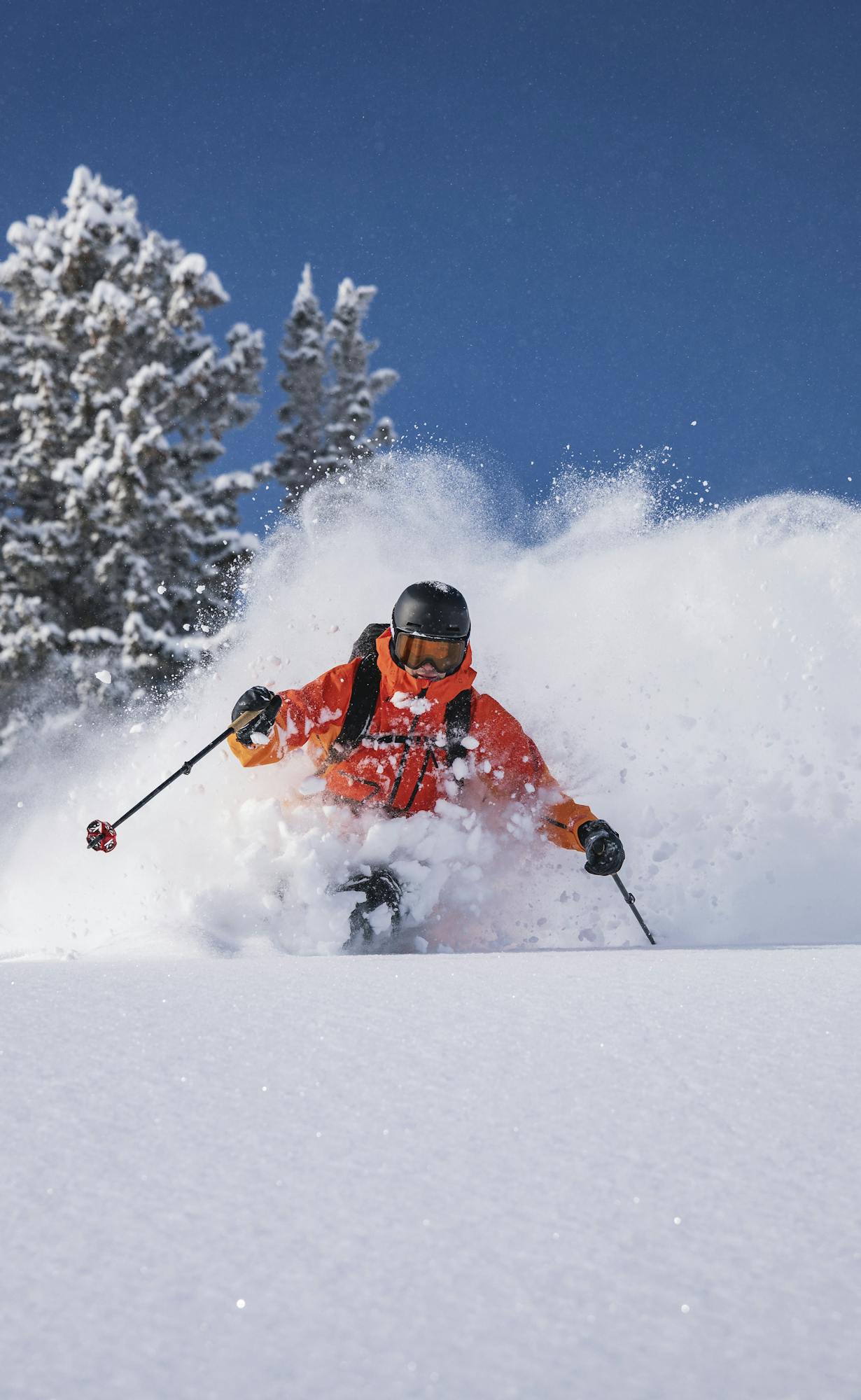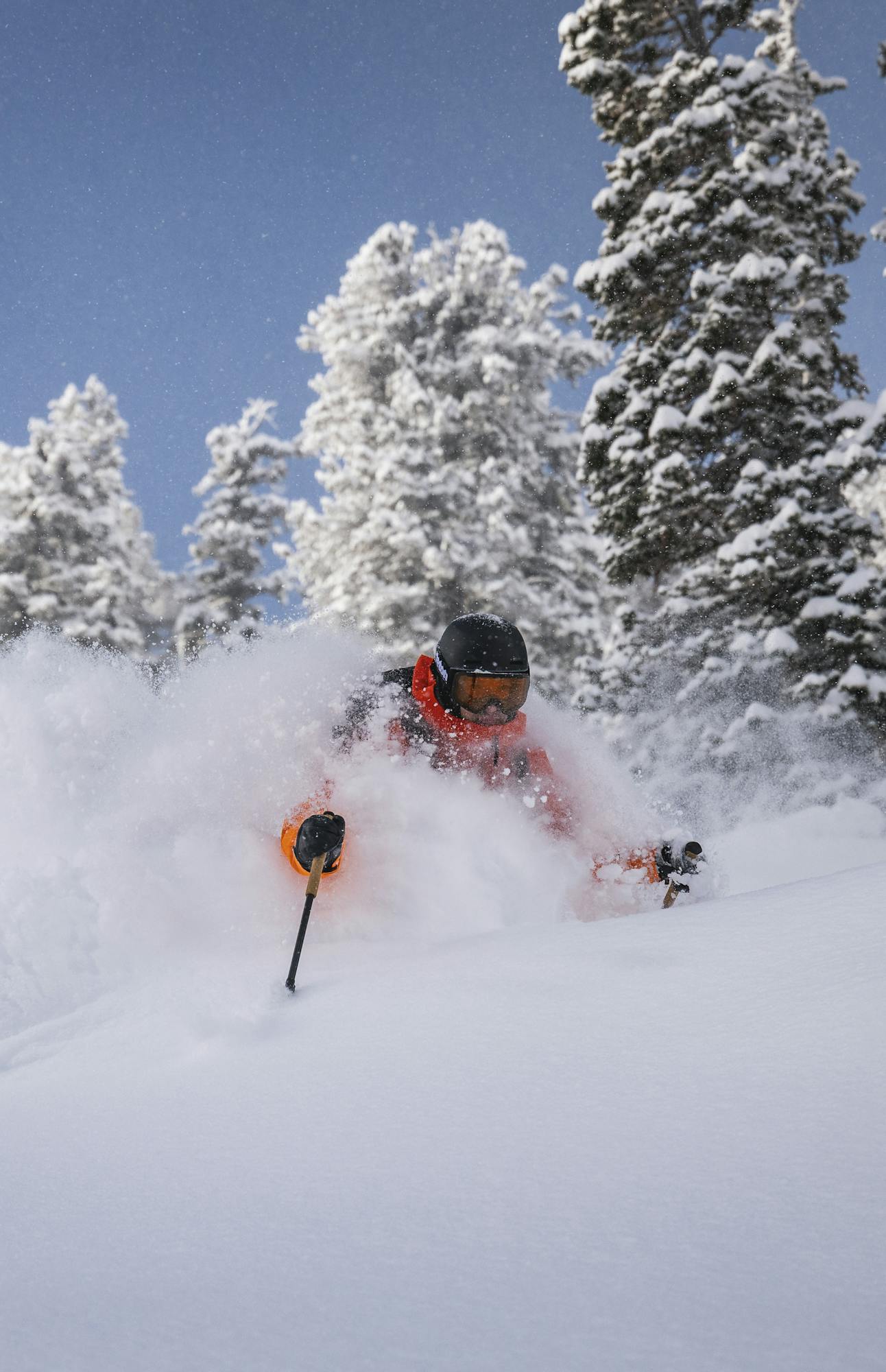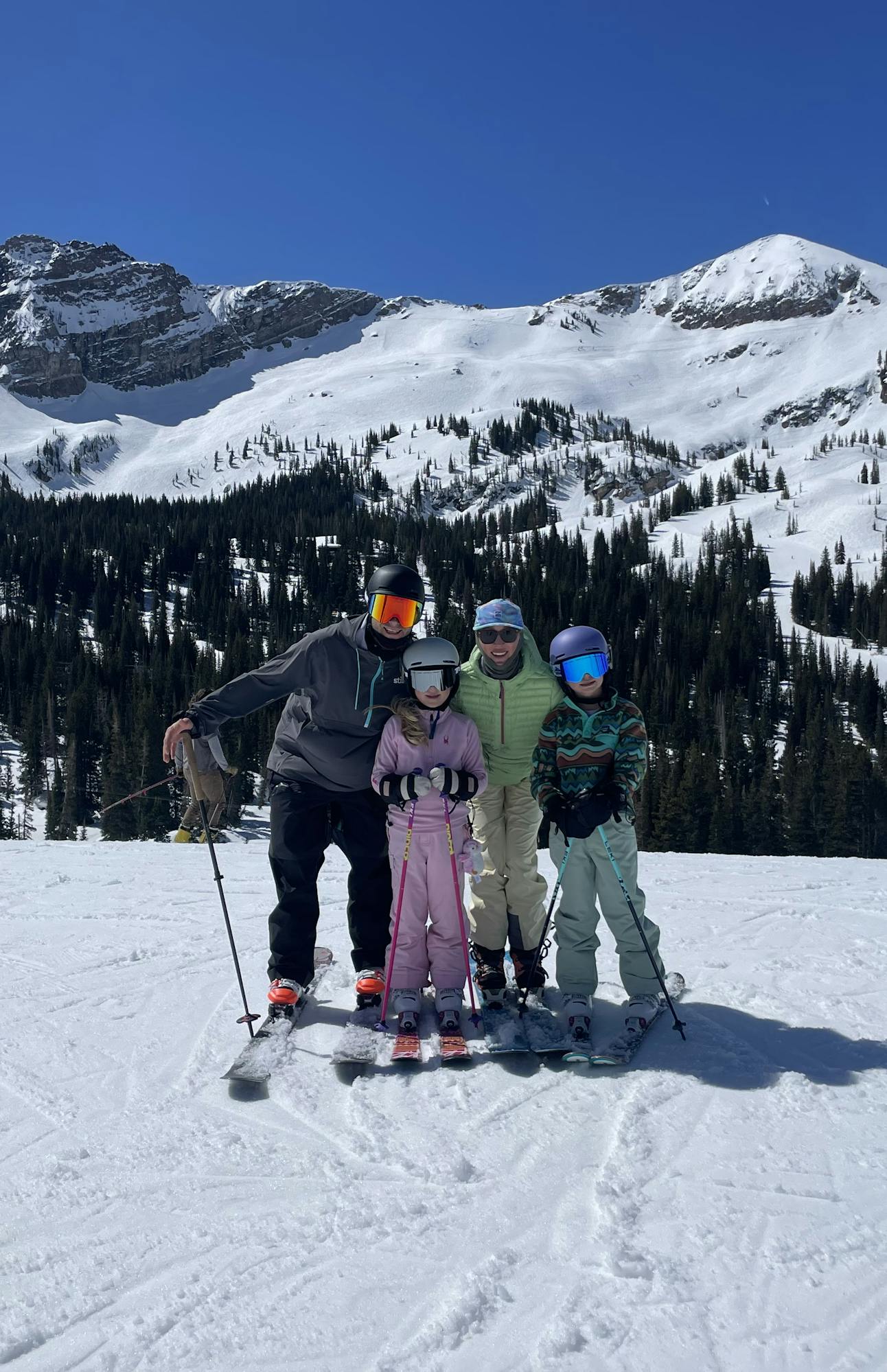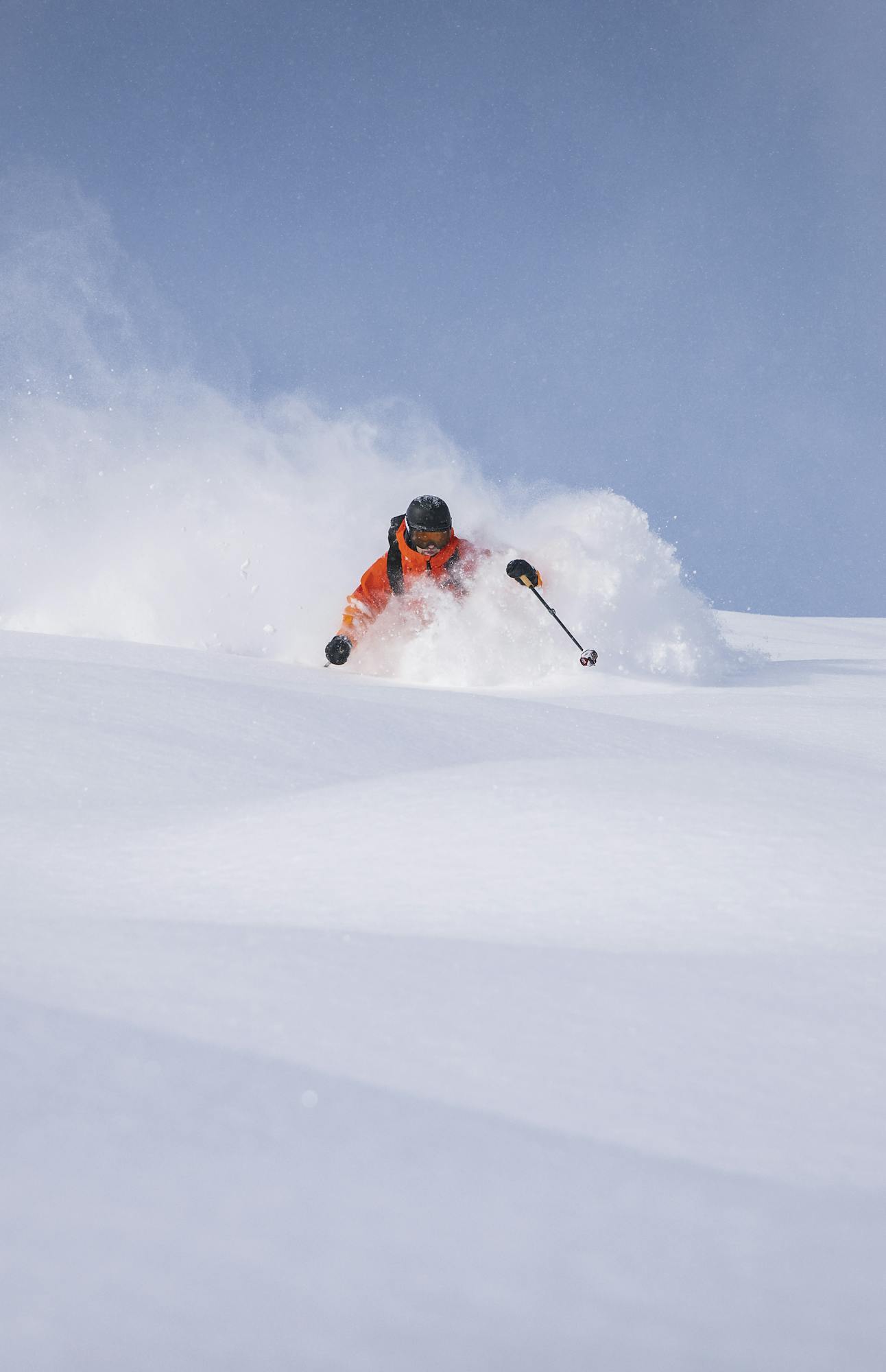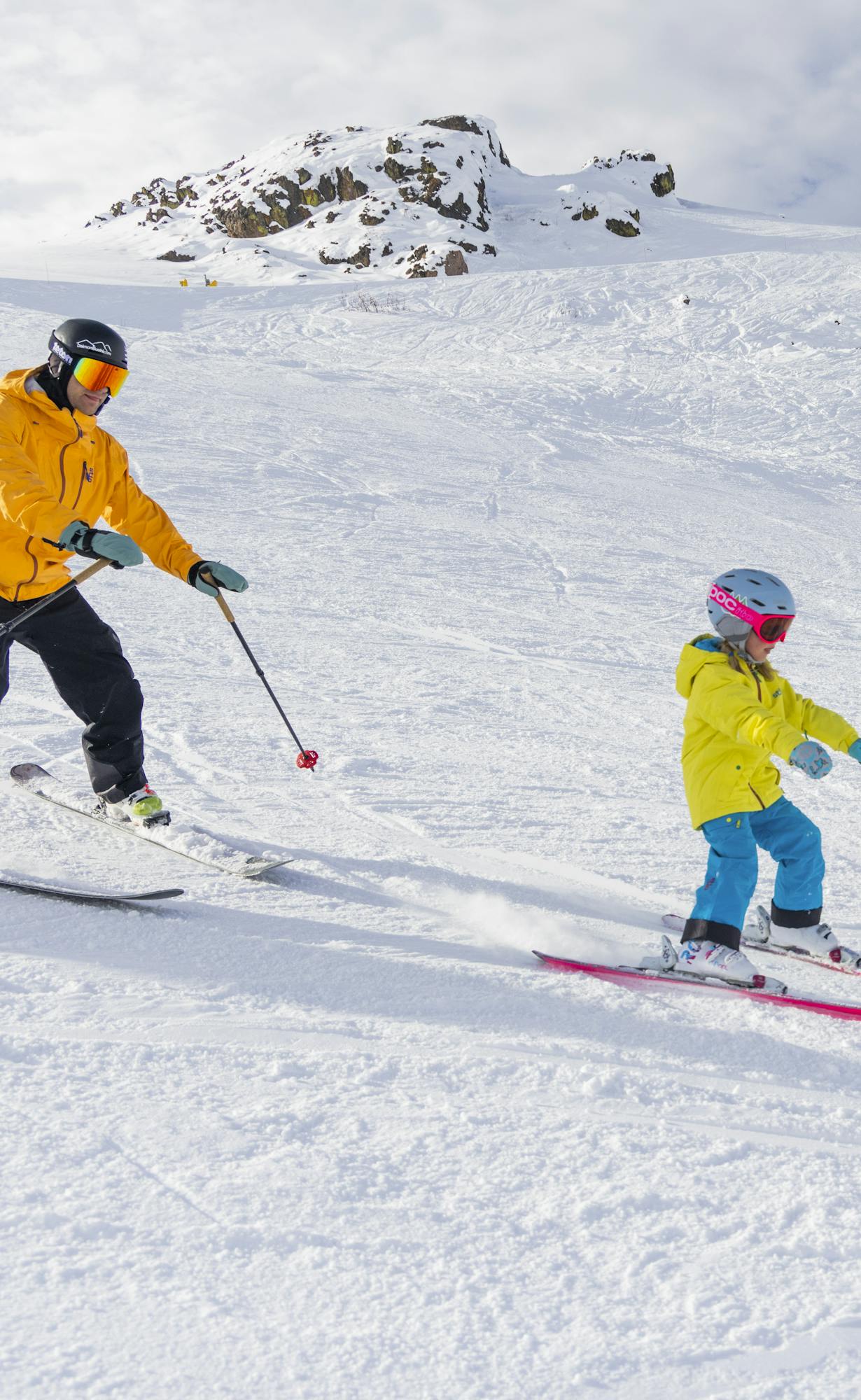Just Plain Lucky
Words by Alex Hunt
It's just over a year from the hit-and-run that changed Dash Longe's life. He's marking the day not by looking back, but looking forward—doing what he loves with the friends and family who helped him recover. Dig into how staying grounded in gratitude and family helped Dash on his hard-fought recovery back to his life, and back to the mountains.
Photo by Rocko Menzyk. One year and one day after the accident, Dash Longe enjoys some deep turns in fresh Alta powder—a reminder of resilience, recovery, and the joy found in every turn.
“Dash was in an accident,” said the voice on the other end of the phone in a critical tone. “He was hit by a car and is in the hospital.” The life of veteran professional skier Dash Longe was in a state of peril and his wife was calling me to relay the troubling news.
It was Thanksgiving weekend of 2023 and their family of four was visiting her parents in Sun Valley, Idaho. After his third night without rest, an unfortunate side effect of the steroid medication (prednisone) he had been prescribed after suffering a nasty bug bite attack, Dash found himself taking a walk at 3 a.m. in an effort to clear his head. The solitude he found that cold, dark night provided him time to envision the rapidly approaching winter, and revel in the excitement of returning to the snow-covered playgrounds in which he thrives. Suddenly, Dash was struck from behind in an apparent hit and run. Shortly thereafter, he was discovered—unconscious—by an off-duty police officer. After being quickly transported to the local hospital for critical care, he was transferred to a larger hospital in Boise. With his plans of artistically illustrating the pristine powder he sees as a canvas abruptly put on hold, a much more serious challenge now lay ahead for the Stio Mountain Athlete.
Dash’s diagnosis revealed several severe injuries, including a traumatic brain injury (TBI), damage to his fourth cranial nerve (which caused double vision), a pelvis broken in three places, and a fractured sacrum. Upon learning this it was clear to his wife, a Salt Lake City trauma nurse with a strong background in this particular field, he would need the best possible long term care during the physically and emotionally demanding recovery that was to come. She spoke with close family friend Matt Philippi, a former professional skier himself, who was serving as a resident on the Orthopedic Unit at the University of Utah hospital. Together, with the support of the attending physician, they successfully advocated for Dash to be transferred back home to Salt Lake from Boise; allowing his wife to breathe a sigh of relief. This monumental task proved to be worth the effort when Matt and the attending physician, upon careful manipulation, were able to determine that pelvic surgery wasn't necessary—a procedure the team in Boise had planned to execute.
Dash’s memory of those early weeks is fragmented. When the haze lifted he faced the overwhelming reality of his situation. The sorrowful and fear-filled moments he endured while laying in his hospital bed led to some scary questions: would he be able to walk, talk, and think as he once had? For someone who has always relied on quick reflexes and sharp mental clarity, these uncertainties brought about a full range of unsettling feelings. But the unwavering support of those closest to him, from the medical team to his wife, provided the uplifting energy he needed to forge ahead on his arduous journey.
His rehabilitation began slowly and humbly. Inpatient therapy became a daily regimen, with each day focused on reclaiming lost skills. As tears were shed, he was tested in ways he’d never experienced, and every small success was a hard-fought victory. Dash remembers the care and support from staff fondly, recognizing how critical they were to his progress. Even more important was his loving wife. She was his rock, handling everything at home with their two school-aged daughters in a thoughtful and caring manner while her unwavering encouragement helped him progress through each milestone, giving him the strength he craved. “I know I wouldn’t be where I am today in the healing process without her and everything she did,” Dash told me. “Her resilience, love, and ability to frame the accident in a way that didn’t traumatize our daughters gave me peace, knowing that my family was safe and secure.”
Doctors warned him early on: too many stressors would cause setbacks. Although it meant temporarily setting aside his career, his passions, and even his family, the isolated environment let his brain rest. Despite the distance from his loved ones, which weighed heavily on his soul, Dash knew it was key to his healing. As a loving father and husband stepping back from his family felt unnatural. But in letting go, he realized just how necessary it was to his recovery.
Eventually, after months of grueling rehab he returned home to his safe place where emotions could be processed freely. Reuniting with his girls and getting back into a routine with them provided a much-needed sense of joy and a new perspective on life. Working on small projects with his daughters forged new bonds and were met with a deep sense of love and gratitude. For a man who once thrived on adrenaline-fueled cliff drops and steep descents, there was a revelation in finding fulfillment in simpler moments. Sitting on his patio, planting a garden, or just appreciating the warmth of the sun on a calm spring day were experiences he might have previously glossed over. Returning to his family and cherishing those moments with them now meant everything.
“Whether you believe in a higher power or not, something decided it wasn’t my time to go. I GET to be a husband and a dad again. I GET to ski again,” he reflects. “I could have spent countless hours filled with anger that this happened to me but instead I’ve chosen to focus on the fact that I survived and am able to function how I want. I’m convinced it’s my grateful attitude, which far outweighs any resentment, that has been the primary factor in my recovery.”
Today, nearly a year after the accident, Dash feels more at home in his life than ever before. It’s not the need for the next adventure but the contentment in being present that defines him now. His experiences have led him to rethink what it means to be a Mountain Athlete. He is here to share his story, and encourage others to live fully, but with a more mindful attitude.
This winter, as Dash dons his Figment kit, he’s dropping into a season he wasn’t sure he’d see again. The slopes are no longer just a playground; they’re a reminder of everything he has endured and everyone who has supported him. With a renewed sense of purpose, he approaches each run not to push boundaries but to savor the simple act of sliding on snow with gratitude and newfound humility. Whether he’s arcing down a groomer or trenching his way through waist-deep powder, Dash knows one thing for certain: he’s just plain lucky to be here.
Featuring Stio Mountain Athlete
Follow us @stio
See how people are living the mountain life everyday in our gear.

